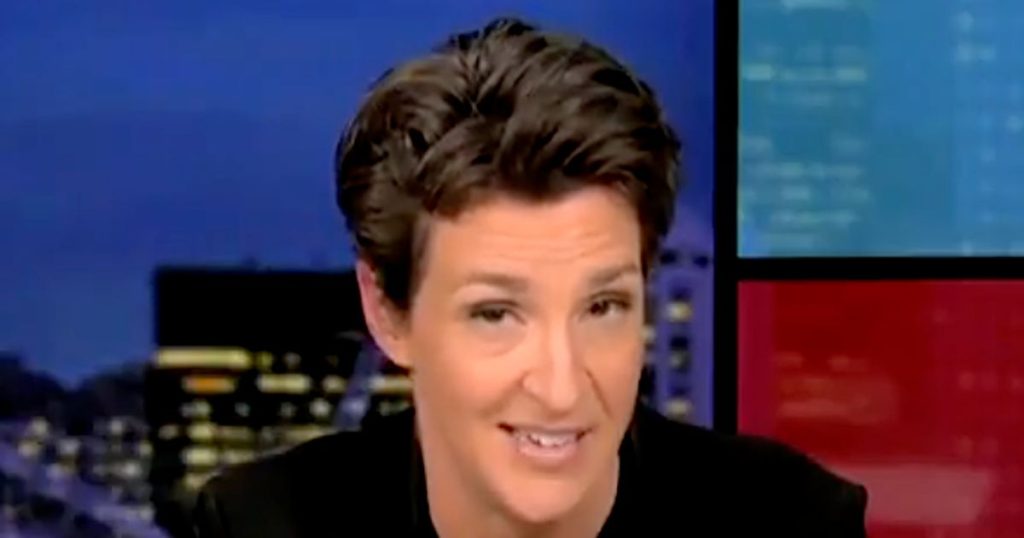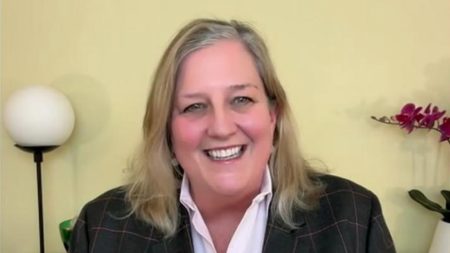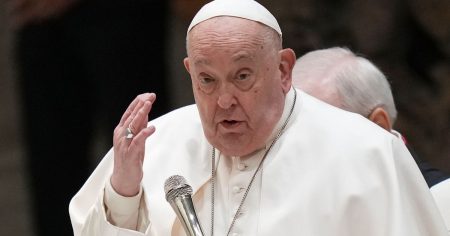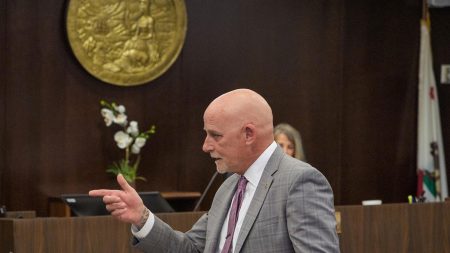MSNBC Shake-Up Sparks Controversy and Criticism from Rachel Maddow
Introduction to the Controversy
In a surprising and candid move, MSNBC host Rachel Maddow openly criticized her network on Monday for what she described as a “bad mistake” in canceling her colleague Joy Reid’s show. Maddow also expressed strong disapproval over the removal of non-white hosts from prime-time slots, calling the decision “indefensible.” The backlash came after MSNBC announced a major overhaul of its schedule, which included the departure of Reid, a prominent Black host, and the reassignment of Alex Wagner, who is of Burmese descent. Maddow’s comments not only highlighted the loss of diverse voices on the network but also shed light on the broader implications of such decisions for the network’s culture and employee morale.
Rachel Maddow Pays Tribute to Joy Reid and Criticizes Network Decisions
Maddow’s critique came as she bid farewell to Joy Reid, whose show, The ReidOut, was canceled as part of the network’s programming changes. Maddow praised Reid, saying, “I have so much more to learn from her,” and expressed her personal regret over Reid’s departure, calling it a “bad mistake” to let her leave. She emphasized the value Reid brought to the network, both as a colleague and as a voice that represented underrepresented perspectives. Maddow’s remarks were not just a tribute to Reid but also a thinly veiled rebuke of the network’s decision-making process.
However, Maddow’s criticism went beyond Reid’s departure. She pointed out that MSNBC was losing two non-white hosts in prime time—Reid and Wagner—and also parting ways with Katie Phang, who hosted a weekend show. Maddow described this as “unnerving” and questioned the justification for such decisions. “It feels worse than bad, no matter who replaces them,” she said. “That feels indefensible. And I do not defend it.” Her words underscored the concern that the network was taking a step backward in terms of diversity and representation, particularly in its most visible time slots.
The Impact on Behind-the-Scenes Staff
Maddow also addressed another aspect of the network’s restructuring that has garnered less attention: the treatment of behind-the-scenes staff. She criticized MSNBC for requiring employees who were losing their jobs due to the programming changes to reapply for positions within the company. “That has never happened at this scale in this way before when it comes to programming changes,” Maddow said, calling the move “inefficient” and “unnecessary.” She argued that such actions undermine employee morale and create a toxic work environment. “It kind of drops the bottom out of whether or not people feel like this is a good place to work,” she added.
Maddow’s comments resonated with many viewers and colleagues, who applauded her for speaking out against the network’s decisions. Her criticism was seen as a rare display of courage, especially given the increasingly cutthroat nature of the media industry. Her defense of Reid, Wagner, and the behind-the-scenes staff highlighted her commitment to fairness and transparency, even when it meant challenging her own employer.
The Network’s Programming Overhaul Explained
While Maddow’s comments generated significant attention, MSNBC has defended its decisions as part of a broader effort to revamp its programming lineup. The network announced that Reid’s 7 p.m. time slot would be replaced by a new show cohosted by Symone Sanders Townsend, Michael Steele, and Alicia Menendez. All three cohosts are people of color, which some have interpreted as an attempt to maintain diversity in the network’s prime-time offerings. Meanwhile, Alex Wagner, who has been hosting the 9 p.m. slot four nights a week since 2022, is reportedly being reassigned, though the details of her new role remain unclear.
Maddow’s own schedule is also set to change. She will return to hosting her show full-time on Mondays starting in April, while Jen Psaki will take over the remaining weeknights. Maddow had previously scaled back her hosting duties, anchoring only on Mondays during the first 100 days of Donald Trump’s presidency. The changes are part of a larger effort by MSNBC to adapt to shifting viewer habits and compete with other networks in the increasingly competitive cable news landscape.
Conclusion: The Broader Implications for MSNBC and Cable News
Rachel Maddow’s comments have sparked a wider conversation about diversity, employee treatment, and the direction of cable news. While MSNBC has framed its programming changes as a necessary step forward, Maddow’s critique has highlighted the risks of losing talented voices and alienating loyal viewers. The departure of Joy Reid and the reassignment of Alex Wagner have raised questions about the network’s commitment to representation, particularly in its most prominent time slots.
Maddow’s decision to speak out has also drawn attention to the human cost of such decisions, particularly for behind-the-scenes staff who are often unseen but integral to the production of news programs. Her comments have served as a reminder that the media industry is not just about ratings and revenue but also about the people who work tirelessly to bring news to the public.
In the end, the controversy surrounding MSNBC’s programming overhaul serves as a microcosm of the challenges facing the media industry at large. As networks strive to remain relevant in an ever-changing landscape, they must balance the need for innovation with the importance of preserving diversity, fairness, and a positive workplace culture. Maddow’s critique serves as a powerful reminder that these values are worth fighting for, even when it means challenging the very network she calls home.















